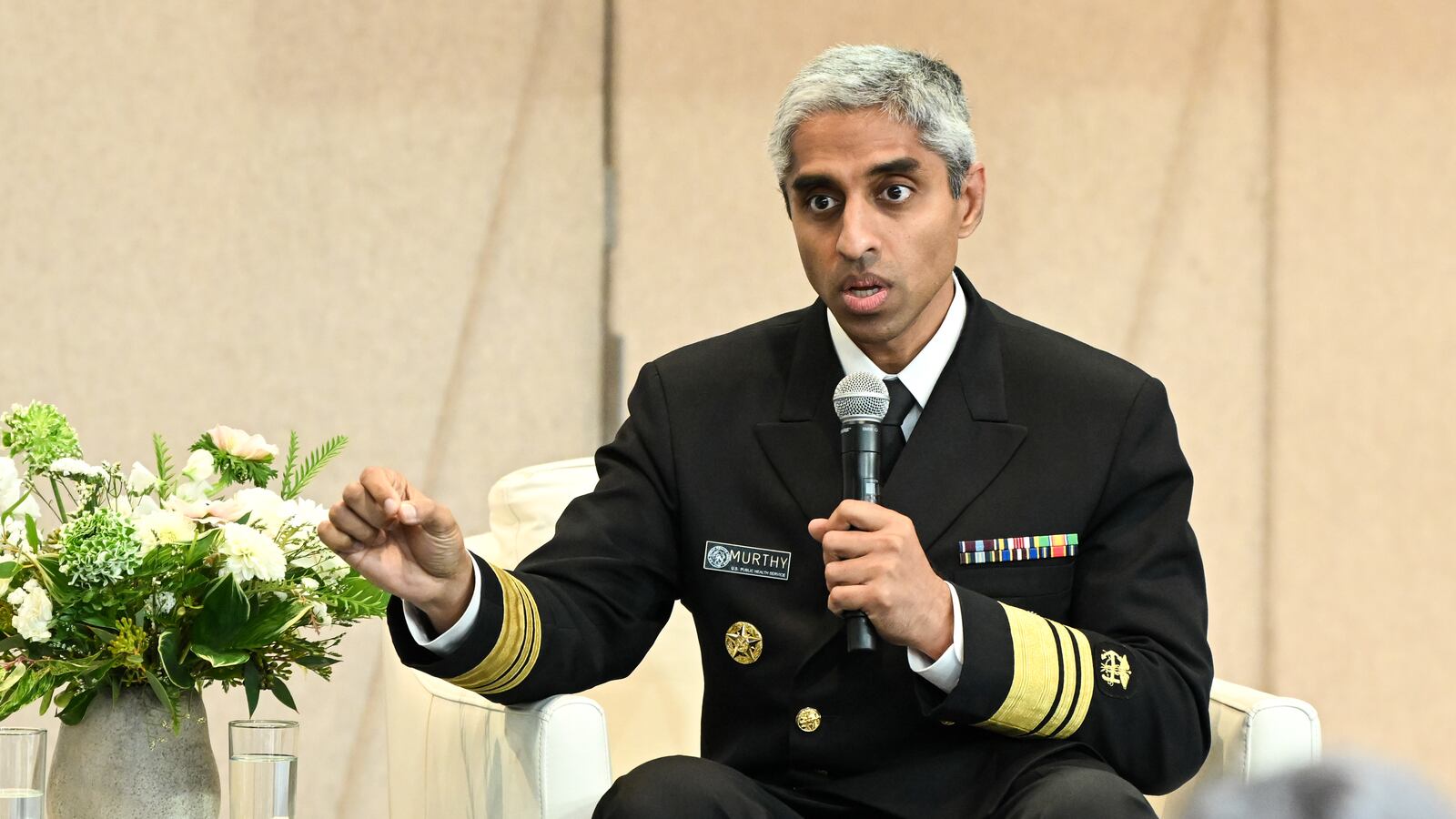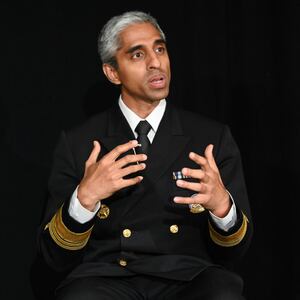The U.S. Surgeon General issued a public health advisory Wednesday on parents’ mental health, calling for urgent action to help the nation’s burned out moms, dads, and carers.
Dr. Vivek Murthy has previously used such advisories—which are intended to call attention to critical public health issues—to address gun violence and the risks social media poses to young people. Murthy is now demanding new political and social support for parents who, he argues, face an unprecedented array of challenges.
“In addition to the traditional challenges of parenting—protecting children from harm, worrying about finances, managing teenagers who are searching for independence—there are new stressors that previous generations didn’t have to consider,” Murthy writes in the foreword to his advisory.
“These include the complexity of managing social media, parents’ concerns about the youth mental health crisis, and an epidemic of loneliness that disproportionately affects young people and parents, just to name a few.”
Over the past decade, parents have consistently been more likely to report elevated stress levels compared with adults who don’t have kids, according to the advisory. It cites a 2023 American Psychological Association survey which found that almost half (48 percent) of parents say they experience completely overwhelming stress most days, compared with 26 percent of other adults.
It also cites studies showing that parents and guardians are more likely to be lonely than non-parents. Today’s parents also work longer hours than those in previous generations while simultaneously spending more time on childcare, activities which may come at the cost of time for sleep, relationships, and personal leisure time.
The situation is even starker for single parents, the advisory says, who are more likely to be lonely and face “heightened stressors “due to sole caregiving responsibilities, financial strain, and lack of support.”
“Stress, loneliness and exhaustion can easily affect people’s mental health and well-being,” Murthy wrote in a New York Times op-ed about the advisory. “And we know that the mental health of parents has a direct impact on the mental health of children.”
“All of this is compounded by an intensifying culture of comparison, often amplified online, that promotes unrealistic expectations of what parents must do,” he continued. “Chasing these expectations while trying to wade through an endless stream of parenting advice has left many families feeling exhausted, burned out and perpetually behind.”
His advisory calls for policymakers to increase support for financial assistance programs including childcare subsidies and child income tax credits. It also calls for the creation of a “national paid family and medical leave program” and guarantees for all workers to have paid sick time.
Employers should also provide training for managers on stress management, the advisory said, and primary health care providers could screen parents and caregivers for mental health issues.
It further encourages parents to engage in activities which help reduce stress like exercise, meditation, and “recreational activities that bring joy.”
“It can be difficult to prioritize yourself amid the demands of parenting, but even small investments of time in stress-reducing activities can make a meaningful difference,” the advisory says.
“Setting healthy boundaries that allow one to take such time should not bring guilt or shame but rather be seen as vital actions that can ultimately benefit parents and caregivers as well as their children,” the document adds. “Finally, it is impossible to get parenting right all the time, so being compassionate and forgiving with oneself is essential.”





